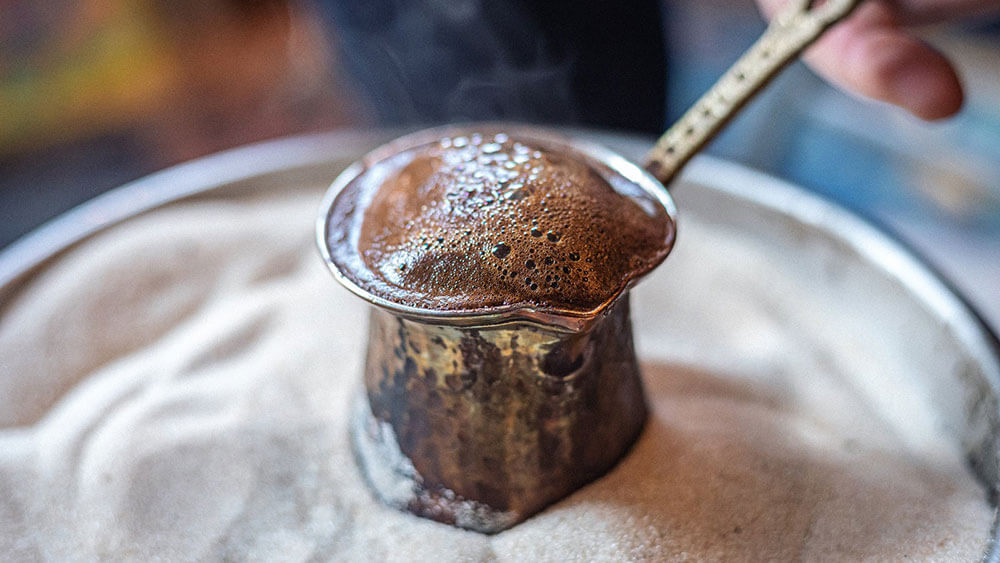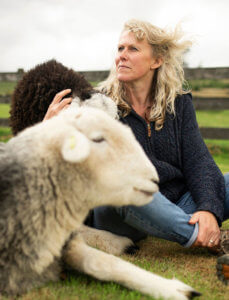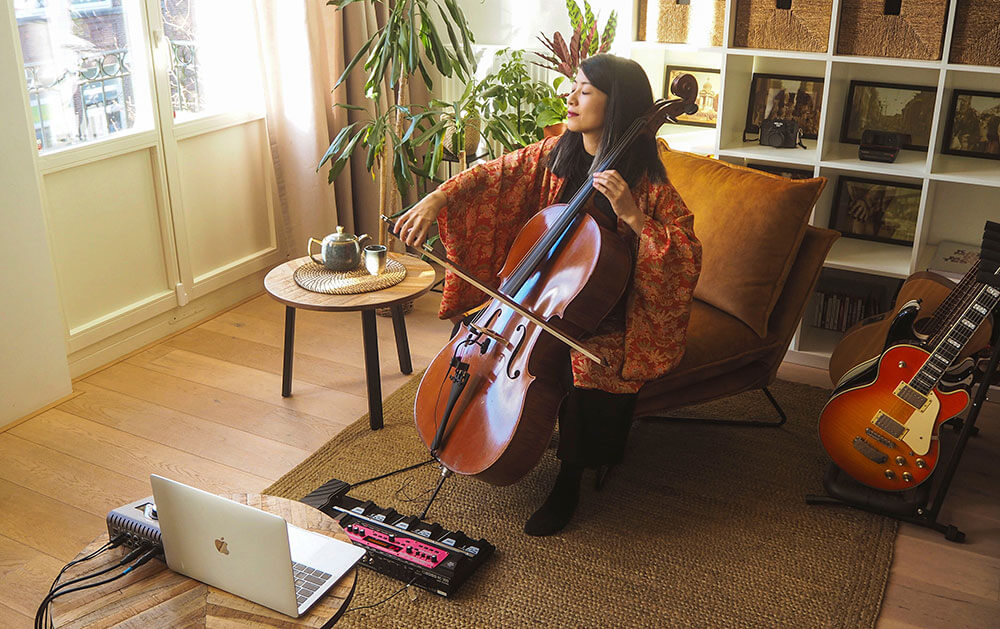
In AirBnB’s Turkish coffee fortune reading experience, participants learn how to read their fortunes in the ground left at the bottom of the cup. (Courtesy AirBnB)
The beginning of the new decade was supposed to mark a new chapter for Airbnb. When Convene looked ahead to our lodging forecast for 2020, the company’s much-talked-about initial public offering seemed like it would be the biggest headline in hospitality this year. Instead of ringing a bell on Wall Street, the company is raising billions of dollars in additional debt to navigate the challenges of COVID-19. On April 14, Airbnb announced that it had secured a $1 billion loan that Brian Chesky, Airbnb co-founder, CEO, and head of community, said would help “assure that Airbnb will emerge from the storm of the pandemic even stronger, regardless of how long the storm lasts.”
That loan is on top of another $1 billion investment the company had secured just eight days earlier. According to CNBC, that round of financing valued Airbnb at $18 billion — a significant drop from the company’s $30 billion valuation from early 2019 and a big pivot for Chesky. “We were preparing to go public,” he said in a Masters of Scale podcast episode released earlier this week. “We had a plan, and I felt great about the plan. And all of a sudden, it felt like I was captain of the ship and a torpedo hit the side of the ship.”
COVID-19 has forced leaders of every travel company to make major adjustments. For Chesky, he looked at the crisis with some key guiding principles: “Do more than people expect, be remembered for how we conduct ourselves, be nimble, pivot to where we think the world is going.”
Moving Online and Offering Assistance

Beccy, from Loch Lomond, Scotland, cuddles with one of her sheep. She offers an hourlong meditation with the sheep, and a yoga class with her daughter, through AirBnB’s Online Experiences. (Courtesy AirBnB)
In the short-term, the world is going to their screens, and Airbnb is trying to capture eyeballs and dollars with a new portfolio of Online Experiences. As consumers tune into live-streamed happy hours, concerts, and cooking classes, Airbnb is betting that guests who cannot travel will pay to spend time with the people they would have met on those worldwide journeys. The Online Experience offerings include wide range of activities: $10 for an hour of meditation with sheep in the United Kingdom, a $40 goal-setting session with an Olympic gold medalist, and a $25 Turkish coffee fortune reading, to name a few. The launch included more than 50 options, and the company has plans to add “thousands more” in the near future.
Not everyone has to pay for the experiences. The company is partnering with four organizations that serve the aging population “to help those who are most isolated, like older adults…to be able to learn a new skill while protecting their health” without any costs.
RELATED: How Airbnb Open Is Changing the Attendee Experience
In addition to helping seniors, the company announced a $250 million support package for hosts who were impacted by COVID-19-related cancellations — some Airbnb guests have reported issues with receiving their money back after canceling stays, according to NBC in Dallas-Fort Worth. Hosts with existing reservations were able to receive 25 percent of their cancellation fees. Still, that partial coverage will not be enough to help many of those hosts. According to Chesky, 50 percent of Airbnb hosts count on the company to pay their rent or their mortgage. To help them qualify for some additional assistance, Chesky said that the company worked with members of Congress to get Airbnb hosts written into the CARES Act for potential loans and unemployment relief.

The Wong Janice, an ambient new-age music producer and cellist based in Amsterdam, hosts a cello meditation concert for Airbnb. (Courtesy Airbnb)
Comparing Pathways to Recovery
As many Airbnb properties sit empty, so, too, do hotel rooms. The latest statistics from STR paint a troubling picture for hotels with U.S. occupancy rates at 21 percent. Big brands including Hilton and Marriott have announced numerous properties closing their doors in recent weeks. Airbnb is feeling similar corporate-level pain as its competitors with a hiring freeze, a pause on all marketing efforts, and a 50-percent salary reduction at the executive level for the next six months — but Chesky, who is not currently taking a salary, pointed out a key difference between the Airbnb business model and the typical hotel operating approach.
“Most of our hosts rent the homes they live in,” he said. “In the hotel industry, when a hotel goes below 30-percent occupancy, they usually shut the hotel down. It’s at some point not cost-effective to run the hotel. But if you have a listing on Airbnb, a home or experience, it doesn’t cost you anything to keep it up.”
David McMillin is an associate editor at Convene.
What Events Professionals Need to Know About COVID-19
PCMA has created a COVID-19 resources page to help event professionals find reliable information about the pandemic and to share events industry-related resources to ensure they are prepared now and in the future.
